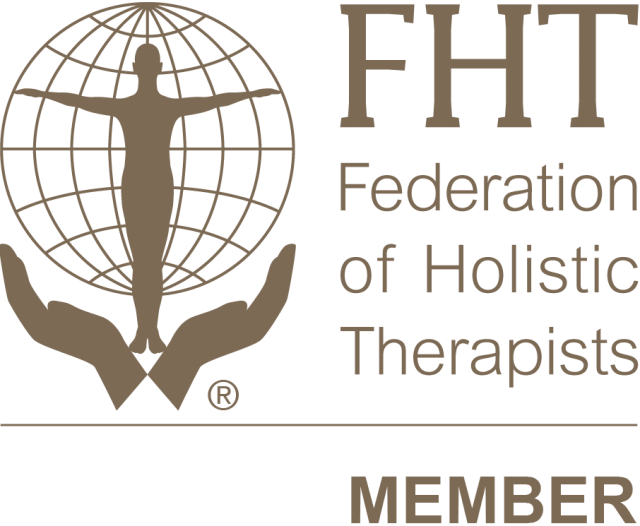You’ve more than likely heard of someone having a ‘thyroid problem’. You might be that person. The thyroid is the butterfly shaped gland in your neck in front of your trachea. It is involved in regulating all sorts of crucial functions in your body, not just maintaining metabolism (the most well-known of its functions) so you really want it working optimally.
1 in 5 people in the UK having some sort of thyroid issue. It is more common in females and the obese. Other contributory factors are smoking, stress, inadequate sleep, having another autoimmune disorder, family history and of course, nutritional deficiencies.
The most common type of thyroid problem is an underactive thyroid or hypothyroidism which effects approx. 2% of the population.
When functioning normally, the hypothalamus in the brain signals the pituitary gland to tell the thyroid to release thyroid hormones (T3 and T4) and when there is enough to do its job there is a negative feedback loop that shuts down production via the same mechanism.
But if there are unfavourable conditions, such as the factors listed above, this finely tuned chain reaction is upset and that’s when issues arise.
My main focus (as ever) is the link between the regulation of insulin resulting from the poor 21st century diet, with the subsequent insulin resistance that is also linked to thyroid resistance. In other words, the body also becomes desensitised to the thyroid hormone like it can with insulin. These two hormones are inexorably linked. If there isn’t enough thyroid hormone there is a knock-on effect and cells have less insulin receptors which expedites insulin resistance.
The common symptoms of hypothyroidism are also symptoms of insulin resistance:
- Weight gain
- Fatigue
- Depression
- Loss of libido
- Constipation
- Heavy or irregular periods
- Brain fog
- Joint pain
If you have any hormone imbalance your body will let you know and once you are aware you need to take evasive action.
Luckily the evasive action is not super drastic and easily achievable. Although a major overhaul of your diet is always what I recommend, that entails eating the foods your body was designed to eat, keeping inflammation at bay, and the reason for doing the work I do.
So, here are the other steps to helping you to avoid a diagnosis or to help if you have already been diagnosed. To be honest this supports any health issue, so they are worth implementing regardless:
- Get enough sleep. Use blue light blocking glasses in the evening to help if you have trouble falling asleep. You need 7-8 hours per night to support good health.
- Decrease stress as much as possible. The right food supports this, but also removing yourself from stressful situations, making life changes and working to alleviate areas that put a mental or physical stress on you. Make this a priority as cortisol is an inflammatory hormone that causes cellular damage and imbalance.
- Exercise for an hour every day. Walking in nature is the most beneficial.
- Practice mindfulness, this is not woo-woo nonsense, study after study show that living in the present and allowing your mind a rest from negativity benefits every part of you.
- Avoid alcohol. Unfortunately, there is no getting around the fact that this is a toxin which puts a strain on your system especially if you are already have impaired thyroid function.
The next three points are nutrition related:
6. Get adequate protein to support growth and repair. Between 0.7g and 1.8g per kg of body weight.
7. Adequate omega 3 which provides EPA and DHA, supporting your brain health. This is best taken in supplement form to be sure of getting enough.
8. Lastly, you need enough micronutrients that specifically support the thyroid.
On this last point let’s take the time to look at the importance of 5 micronutrients.
Iodine:
Without iodine you cannot produce T3 and T4 thyroid hormones. The best sources in the UK are fish, milk and dairy. If you are vegan the next best are bread and nuts. But again, supplementation is advised. A good multivitamin will provide you with the 150ug you require daily.
Selenium:
We used to have plenty of this in our soil which was then taken up by plants or animals eating plants which we, in turn, ate. But in the past 70 years this has been seriously depleted, so to get enough now a supplement is your best bet. Look for one that provides 200ug of organic selenium daily.
Zinc:
Another antioxidant that eases inflammation and regulates the pituitary signal to the thyroid. You’ll need 10mg daily.
Iron:
This is crucial for T4 converting to the more bioavailable T3. If you have low iron, it affects thyroid function. Look to take 14mg daily.
Vitamin D3:
Undoubtedly the best source of this is the sun. Supplementing is no match for sunlight (a recommended read is my article about the importance of the sun here).
Remember that your body needs the right environment to do right by you. It wants and needs to be totally balanced so that it can perform all the actions required to help you live the best life possible.
I would like to do right by you too, and with that in mind, here is an added bonus for reading the article, a 10% discount code for high quality supplements with Pharma Nord: WIDE10
Enter the code at checkout. Simply visit https://www.pharmanord.co.uk/all-products
And don’t forget that you get a personalised supplement advice summary after your first appointment with me. Book your appointment today.



